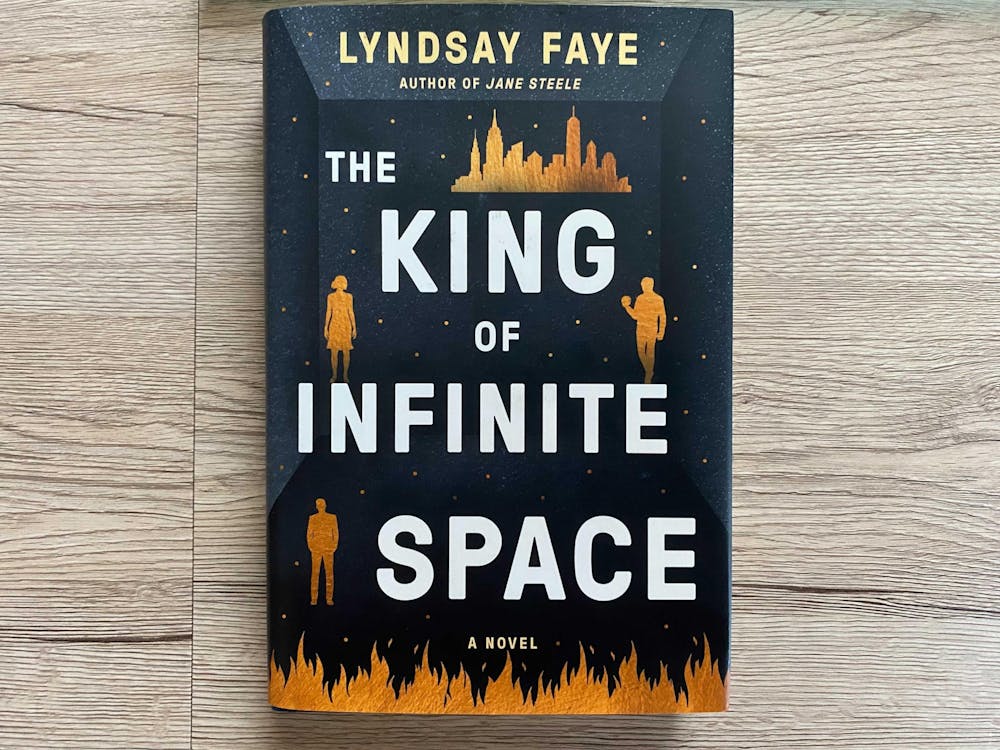“When sorrows come, they come not single spies but battalions” (Shakespeare 4.5.83-84).
A quote I melodramatically borrow from Shakespeare’s “Hamlet” whenever the slightest inconvenience crops up in my life, this time the sentiment was un-ironically in my mind after finishing Lyndsay Faye’s beautifully tragic August release, “The King of Infinite Space.”
Faye’s latest novel offers a modern, queer and feminist take on “Hamlet” — one of Shakespeare’s finest tragedies entailing murderous plots, foes and friends, and linguistic spinning of epic proportions.
Fayes borrows from the classic storyline of “Hamlet” while weaving in original, creative points of her own. She introduces a main-character queer relationship, propels the story forward through primarily female characters and explores addiction and mental health in a responsible way.
While her skill with language rivals Shakespeare’s himself, this novel proves her abilities to also grapple with complex topics.
Jumping genres from mystery to fantasy to tragedy and back, Faye winds literary devices and vivid characterization into a story starring neuroatypical philosopher Benjamin Dane.
Dane — who reflects Hamlet’s role in this rendition — knows his father is dead, but questions of how persist. His best friend crosses the ocean to be at his side when he’s needed — despite a chasm resulting from a relationship change so charged it could use an “It’s complicated” status update on Facebook. Meanwhile, Dane’s former fiancée creates art and meaning out of flowers as she is guided through addiction recovery by three near-omniscient New Orleans florists.
While each character is developed enough to be distinct, their stories aren’t disjointed, and Faye adeptly intertwines each perspective to build a cohesive and creative tale.
The book is littered with literary, cultural and philosophical references explained neatly enough to be accessible to the rookie reader, and the story teems with characters so well-explored that they feel tangible.
Faye nods to Shakespeare’s work, scripting lines like “‘Something’s rotten, and it’s not tonight’s fish special,’ Benjamin announces, scowling in thought,’” in contrast to Shakespeare’s famous “Something is rotten in the state of Denmark” penned in Act I, Scene VI of “Hamlet.” Even her character’s names are intentional — Benjamin’s last name is Dane, a less-subtle bow to “Hamlet”’s original setting, and the uncle who quickly marries his late brother’s wife is called Claude, reflecting Shakespeare’s Claudius.
“The King of Infinite Space” feels like a timeless story trapped in a finite 369 pages. Faye’s brilliant use of font changes to signify manic character’s moods, diction and syntax choices fraught with meaning, and gutting descriptions of the trials of living and loving make this work irreplicable and rich.
Infused with ethereal detail, Faye’s story examines the relationship between consequences and intentionality, indestructibility and fragility, and time and everything else.
While I’m game to toss my annotated copy of “Hamlet” at anyone who wants to borrow it, I know most might prefer a story from this century with fewer “doth”s sprinkled in. Faye’s “The King of Infinite Space” is that answer.
There’s a horde of themes to be analyzed and lessons to be learned from her latest, but as Faye writes near the conclusion of the book: “Endings have a mind of their own.”




